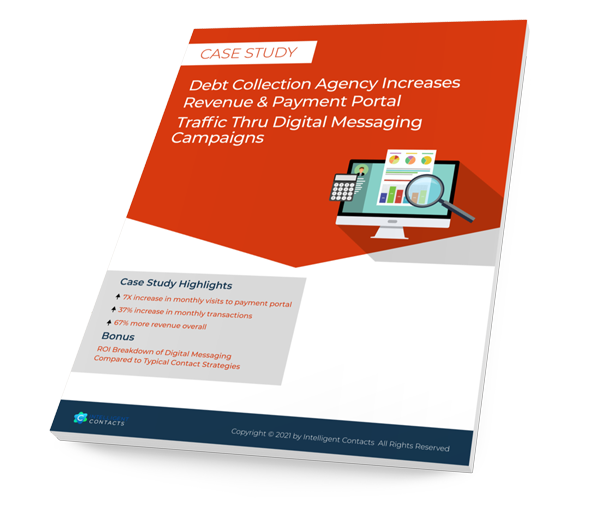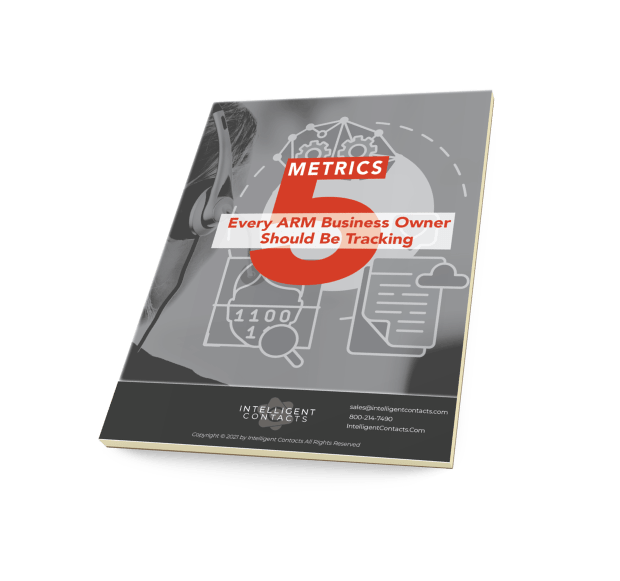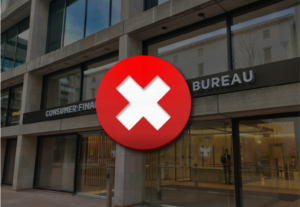STATEMENTS | 10 MIN READ
Your Updated 2022 Tax Season Collection Strategy Playbook

Tax season is here, and that means it’s time to fine-tune your collection strategy. Collection agencies and debt buyers are well aware that during this 8-10 week window, consumers may be receiving tax refunds that could be used to clean up their credit reports. Outbound calls and letters typically increase during this stretch, but having a clearly-defined strategy is what makes this time successful.
In this blog post, we’ll provide you with an updated playbook for collecting debt in 2022. We’ll cover everything from the best practices for communicating with taxpayers to the most effective collection tactics.
Stay ahead of the competition this tax season by using our playbook as your guide.
Let’s start with the basics.
What Strategies Should You Be Using to Collect Debt?
Though any number of collection strategies may work, our playbook recommends the following approaches.

1. Strategic Outbound Communication
Tax season provides a unique opportunity to reach consumers at a time when they may be considering using a tax refund to resolve a past due debt or remove a negative mark on their credit record. It also offers a chance to re-engage people who have yet to respond to past collection attempts, or not followed through on a promise to pay.
Outbound communication can be used by creditors in all industries, but it is particularly effective for collection agencies. Collection agents receive ongoing training in how to professionally and ethically communicate with debtors. Contrary to most billing departments, these agents spend the majority of their day calling consumers and negotiating payment arrangements.
Depending on the situation, you can also contact debtors via email, voicemail, or text message. Emails are great for reminding debtors that their balances are past due and that it is time to settle their accounts.
But don’t just rely on automated email reminders on the 1st and 15th of the month. Use targeted and personalized email templates that are timed with your contact strategy.
Using voicemail, text messages, and phone calls can also serve to increase the likelihood of debtors paying their accounts. Text message reminders are particularly effective for younger debtors, who tend to be more engaged with this format.
Just remember to make it extremely clear that you are a debt collector.
There are many effective ways to do this, including:
-
An initial debt collection letter in which you state that you are a third-party debt collector and provide your contact information.
-
A phone call where you immediately identify yourself as a debt collector.
-
An email where you state that you are a debt collector or claim to be acting for a collection agency.
-
A voicemail where you immediately identify yourself as a debt collector.
Scare tactics don’t work and can even backfire. Some collection agencies have been accused of threatening to seize taxpayers’ homes when the IRS has no right to do so. Others have threatened jail time — a tactic that many courts have found illegal.
Be cautious with your messaging. Stick to the facts of the case, and avoid anything that could be perceived as a threat.
Depending on your industry, you may also want to offer debt settlement options to your customers. This is another way you can increase positive interactions with taxpayers and show them that you offer value-add services.
2. Post-Due Collections
Once tax season is over, it might be tempting to go back to your daily routine and forget about the accounts that you couldn’t collect. But failure to collect during the tax season window isn’t a lost cause for agencies.
You can still contact those taxpayers and remind them that their accounts are past due.
In some cases, you may find that taxpayers have moved during tax season and haven’t updated their address. When taxpayers move, the post office forwards any mail sent to their old address on file with the United States Postal Service (USPS).
You can use this information to find out where debtors have moved, and get in touch with them. In cases where the address change was recent, you can offer a discount for early payment or other incentives.
You may be able to work something out with the customer if they’re in a tight spot. They might be able to pay a reduced settlement balance or you can work out an alternative payment plan if they need more time.
CASE STUDY
A leading third-party accounts receivables company was searching for a more profitable way to engage consumers with special discounts and settlement offers.


5 KPI Metrics You Should Be Tracking
Is your company missing its’ revenue numbers and you have no idea why? Well-defined KPIs allow owners to measure and track the underlying operational objectives critical to business success.
3. Self-Service Payment Portals
When you can’t reach people over the phone or online, a self-service portal is a great option. This allows debtors to pay their balance on their own time and without the help of a collection agent.
You can also use self-service portals as an opportunity to contact debtors about value-added services that would benefit them.
With Intelligent Contacts, for instance, you get access to a payment portal where debtors can pay their balance, communicate with your team, or receive information.
Customers can also use the portal to automate and organize their debt management processes.
Besides, Intelligent Contacts helps customers download statements and other case information, upload documents, and view payment history.
This is a great option to increase collection rates, while reducing the number of calls from debtors who want to settle their accounts. It’s also a good way to build a positive rapport with debtors and show them that you are easy to work with.
4. Use Analytics to Prioritize Accounts
As you collect debts, you’ll have enough data to start segmenting your customers. This allows you to take a targeted approach to collecting debt, while also identifying your most valuable customers.
With Intelligent Contacts, you can use call results from past campaigns to automatically roll over right party contacts and positive interactions into prioritized calling lists. You can also use call results to adjust how you score your accounts based on engagement.
You can flag accounts as low priority if they haven’t paid or responded to communications in the last six months, which will allow you to prioritize those accounts more likely to pay.
You might also set up an automation rule to flag delinquent accounts and send out an automated phone call reminder, email, text, or voicemail drop to remind the consumer.
When you take a targeted approach, you’ll increase collection rates and build a strong foundation for future seasons.
For instance, you can set up a rule to give priority accounts a call within 24 hours. This can help you build rapport and develop stronger relationships with those customers, so they are more likely to pay their balance.
As you calculate the value of your accounts, you can set up an automation rule to automatically delete low value accounts. This frees up resources and helps you focus on your most valuable customers.
5. Use Consumer Data to Offer Tax Season Incentives
When you have a full picture of your customers, it’s easy to create targeted campaigns.
For instance, Intelligent Contacts can help you segment accounts and offer tailored incentives (like prompt pay discounts or lump-sum settlement offers. Vying for the additional expendable income around tax refund season can be competitive. Agencies that can present consumers with an enticing offer to immediately reduce or eliminate a debt, can maximize this short window of opportunity.
Modern collection agencies are leveraging consumer data to create personalized collection campaigns that offer convenience, self-service, and preferred digital channels like email and text to increase response rates and shorten the recovery cycle.
6. Factor in the Diminishing Value of Debt Over Time
As a debt ages, the probability of collecting on it diminishes. Account holders move, change phone numbers, and become less motivated to pay. Your tax season playbook should factor in this harsh reality and adjust strategy as balances move from 30, 60, and 90 days past due.
Adjusting your collection strategy as debt ages might mean accepting longer payment terms or smaller down payments than your normal business rules would allow. It could mean getting creative with a customized payment play that allows a consumer to skip a month down the road.
Get the Most Out of This Tax Season
The approach you take during this tax season should help shape future years. Pay close attention to what worked and what didn’t. Make sure to document everything you discover while it’s still fresh in your memory.
This is one of the key advantages of taking a data-driven, targeted approach to debt recovery. It provides the opportunity to track, analyze, and improve results. Which helps you to identify opportunities for growth and win new business.
To learn more about how Intelligent Contacts’ communication and payment tools can help supercharge your collections operation, let’s schedule a free demo today.
Want to know more?
Whether you’re looking to upgrade one part of your billing process or the whole enchilada, we can help!






